invers/invertiert
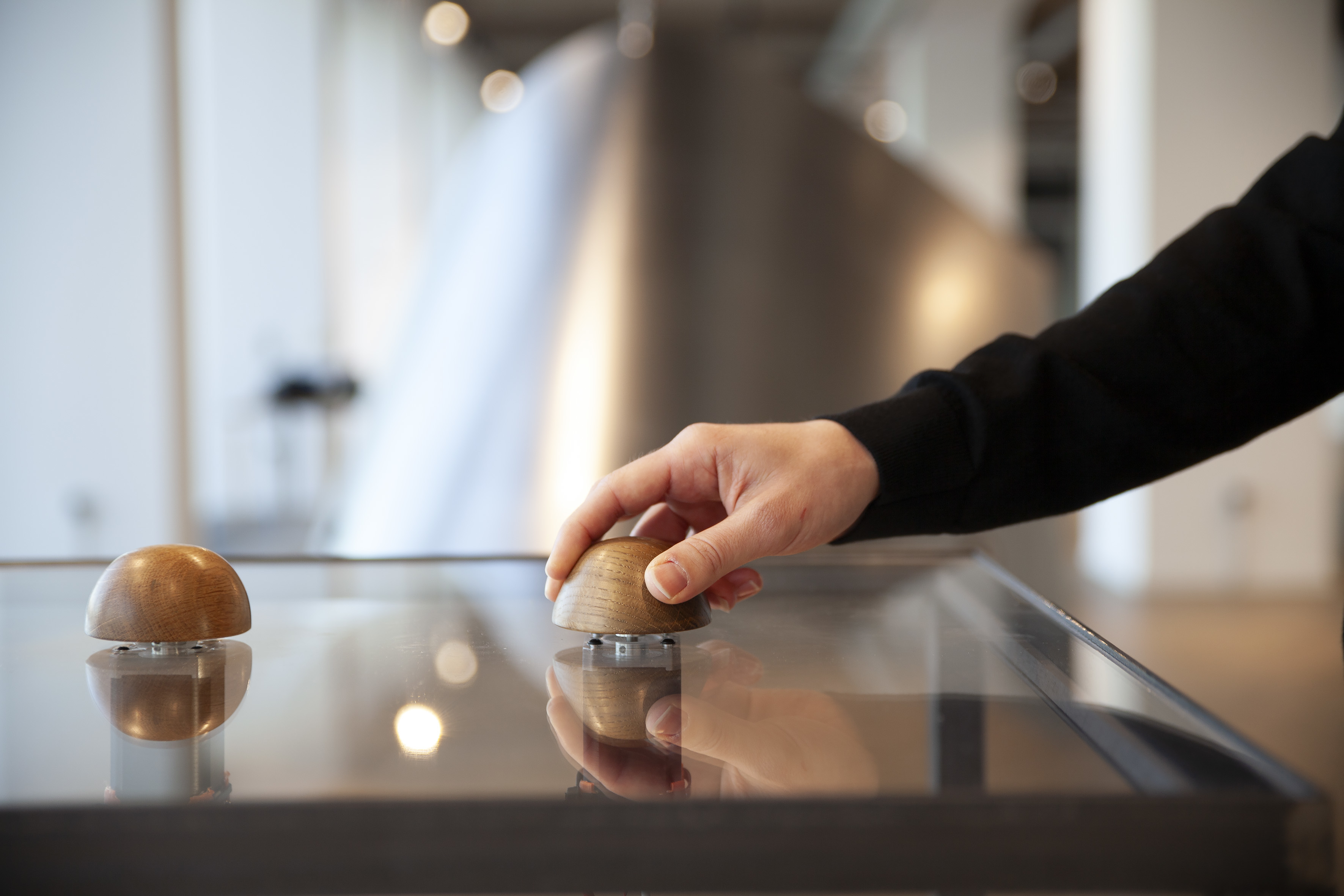 © Eva Czaya – 2024
© Eva Czaya – 2024
This project shows another cooperation with Sebastian Fecke Diaz that unfolded in the Summer 2024 as part of his masters exam for Klang und Realität at Robert Schumann Hochschule Düsseldorf.
Together we wanted to investigate the potential of different conceptual approaches to the medium of touch within musical composition and invers mathematical relations.
For that we experimented with Eccentric Rotating Motors (ERM) for creating force feedback, as well as exciters for creating vibrational feedback.
press:
The sound installation invers/invertiert deals with inverse relations and thus with opposing structures that are structurally identical at the same time.
Two metal plates rotate freely in space like twin sheets of paper, serving as sound bodies for four sound transducers attached to them.
The sound reproduced by the metal plates can be controlled interactively by the audience with the help of two inversely rotating motors. Position and velocity of the motors are measured by magnetic sensors and processed in compositions that deal with an inversion in the sound in different ways.
Sommerfest Klang und Realität – 2024
Links:
ES365
Place:
Erkrather Str. 365
40231 Düsseldorf
Time:
July 13th 2024
pics:
 © Laurenz Ulrich
© Laurenz Ulrich
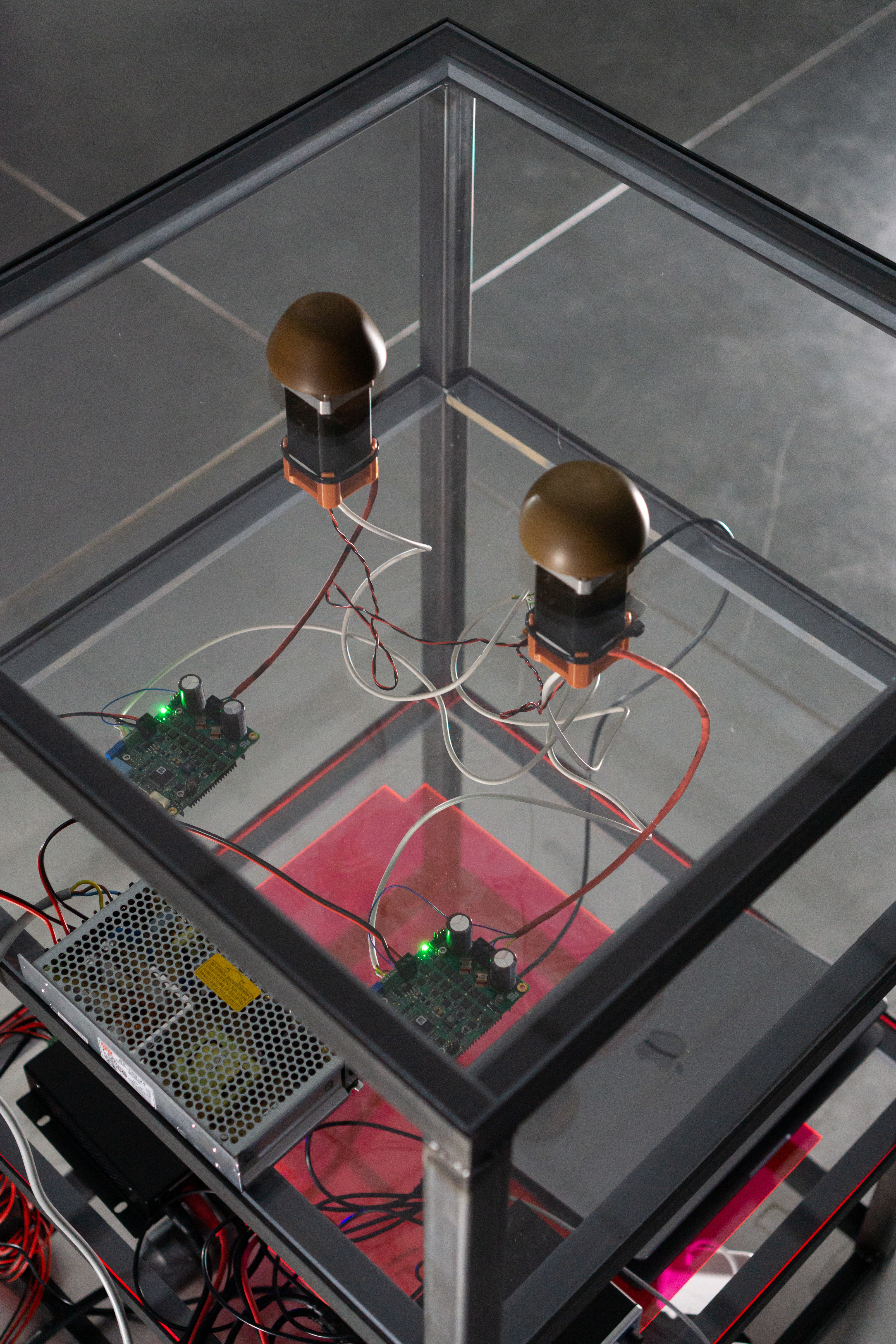 © Laurenz Ulrich
© Laurenz Ulrich
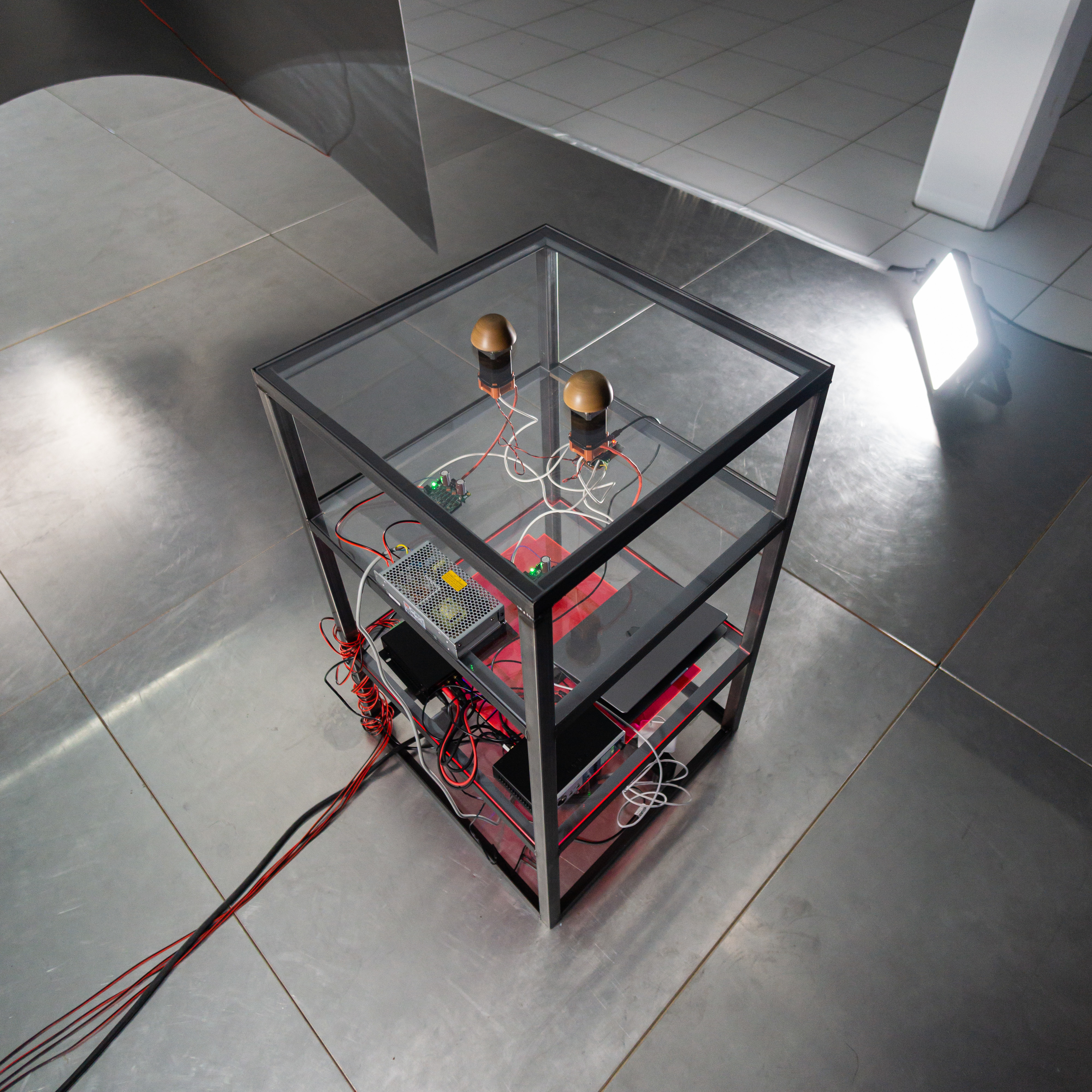
© Laurenz Ulrich
Klangrauminstallationen
Place:
the room
Kaistr. 16a
Medienhafen Düsseldorf
Time:
Nov. 15th – Nov 30th 2024
pics:
© Eva Czaya – 2024

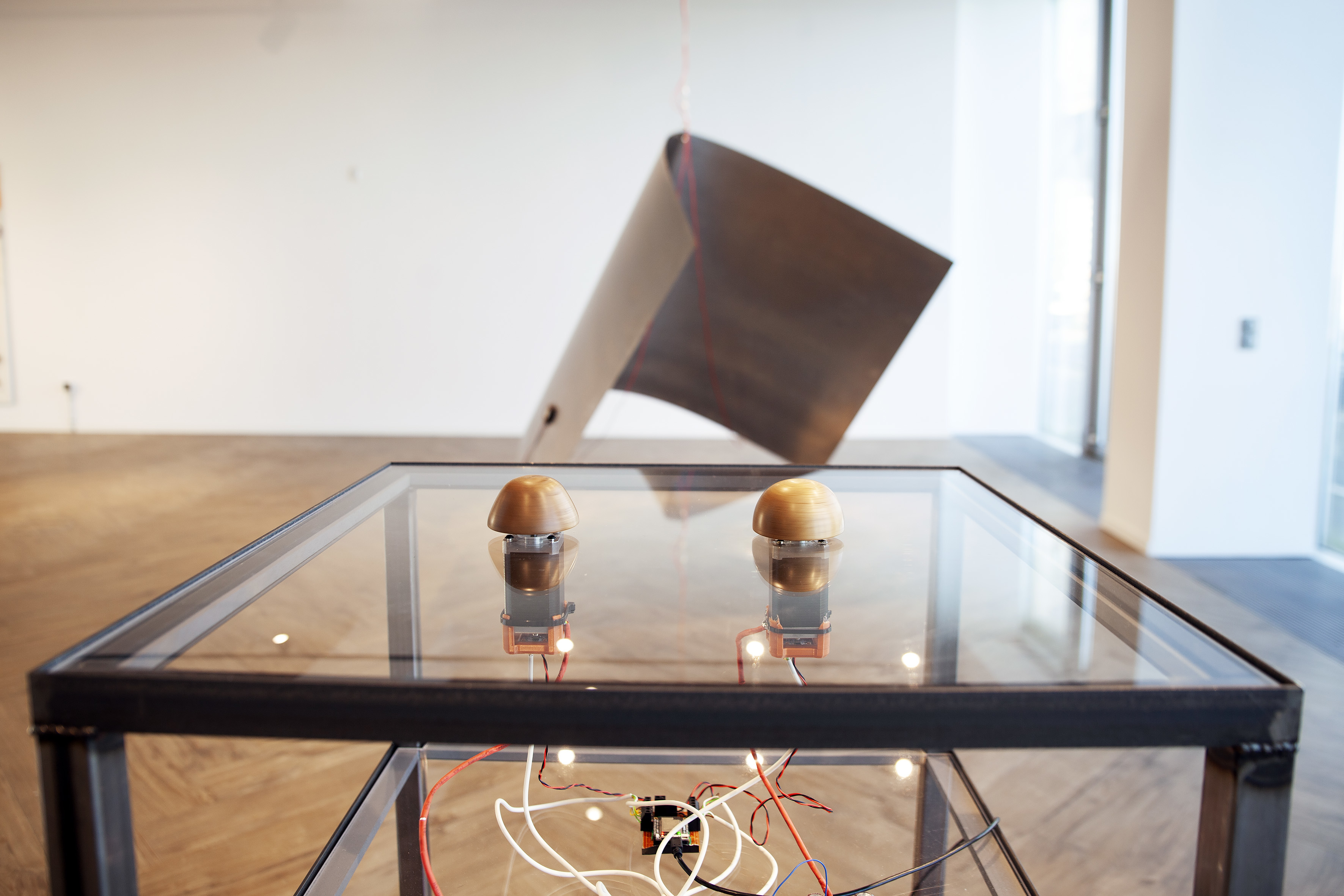
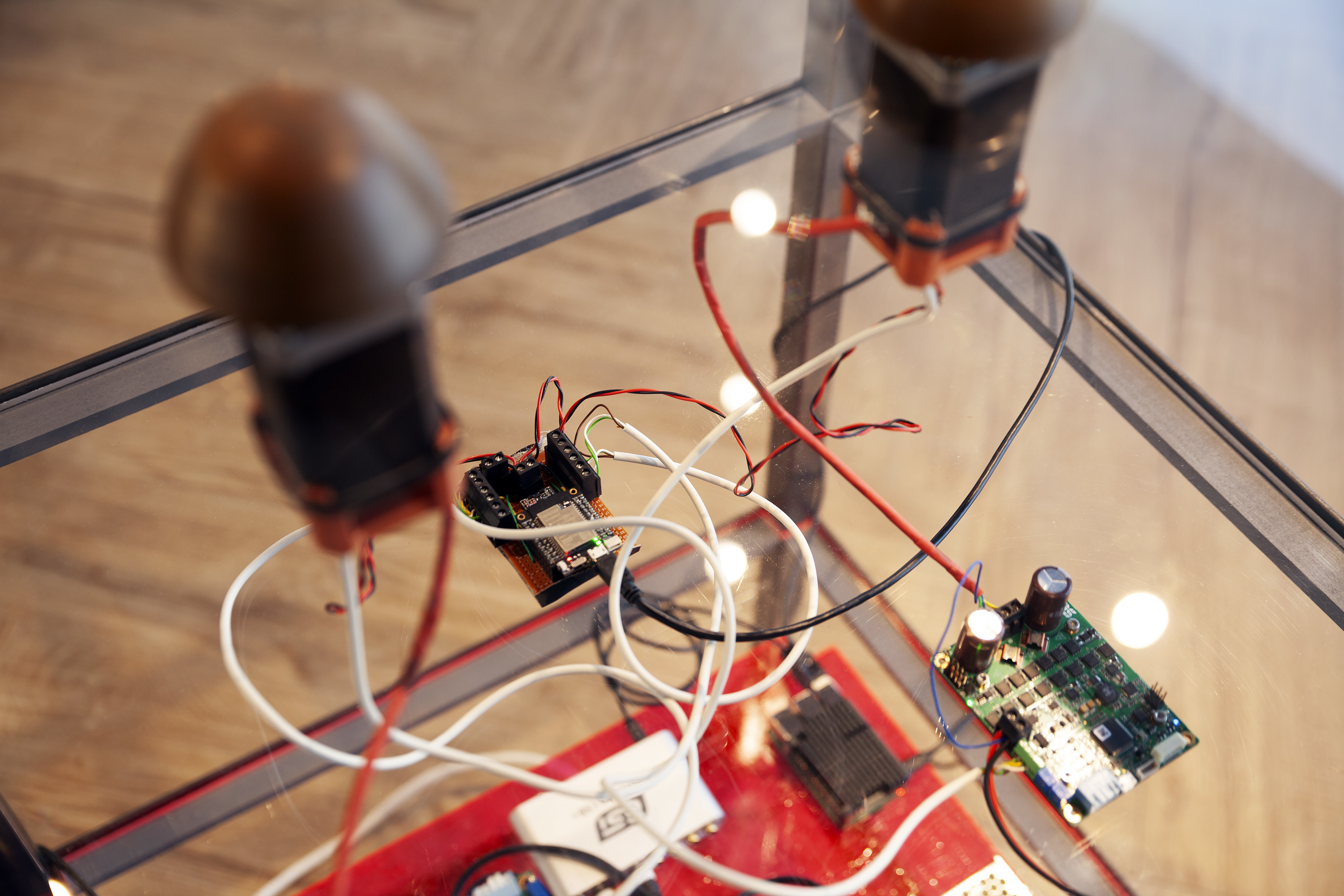
A big thank you to Gabi Luigs for inviting us and to the other exhibiting artists for creating an all over amazing exhibition!
technical stuff
For the brain of this controller, we used a LILYGO® TTGO T7 (v1.4) ESP32. This MCU reads from two AS5600 magnetic hall sensors to gather positional data of two ACT® 42BLF03 BLDC-Motors to calculate their rotational speed.
Several functions were introduced to interpret this data and readjust the motors’ speeds through two Solo Uno v2 motor controllers by SoloMotorControllers® depending on specific conditions that can be changed by through SuperCollider or by touching the motors rotor.
The MCU is connected to a RaspberryPi 4® through USB. This SBC is running a routine or composition in form of a SuperCollider patch, that is using the rotational and positional data of the two motors on the one hand and switching through different operational modes of the MCU on the other hand.
The sound generated by this composition was fed to four transducers that were attached to two steel plates.
The source code needs some revisioning, before making it public, so it cannot be shared here as of yet.
Credits:
| Sebastian Fecke Diaz | – | conceptualization & composition | ||
| Íngrid Pons i Miras | – | stage design | ||
| Felix Schormann | – | steel- and woodwork | ||
| David Hanraths | – | technical production |